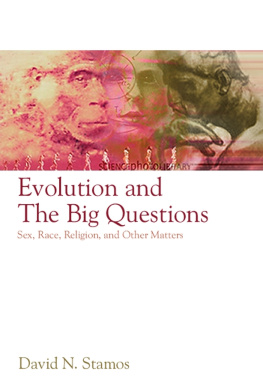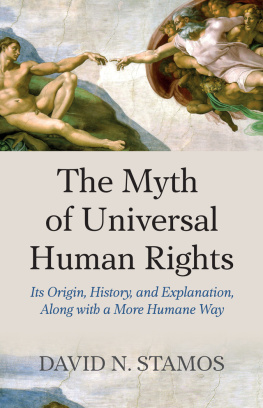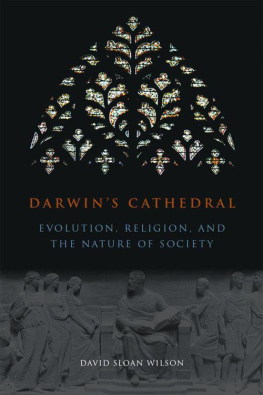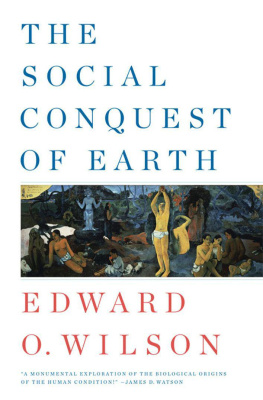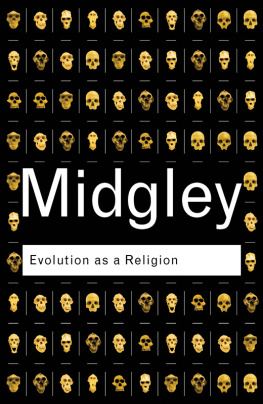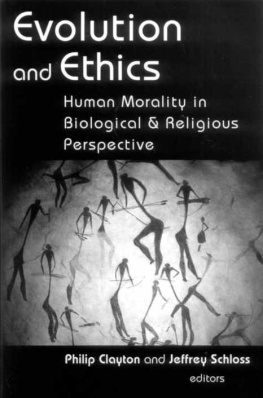
For my students
2008 by David N. Stamos
BLACKWELL PUBLISHING
350 Main Street, Malden, MA 021485020, USA
9600 Garsington Road, Oxford OX4 2DQ, UK
550 Swanston Street, Carlton, Victoria 3053, Australia
The right of David N. Stamos to be identified as the author of this work has been asserted in accordance with the UK Copyright, Designs, and Patents Act 1988.
All rights reserved. No part of this publication may be reproduced, stored in a retrieval system, or transmitted, in any form or by any means, electronic, mechanical, photocopying, recording or otherwise, except as permitted by the UK Copyright, Designs, and Patents Act 1988, without the prior permission of the publisher.
Designations used by companies to distinguish their products are often claimed as trademarks. All brand names and product names used in this book are trade names, service marks, trademarks, or registered trademarks of their respective owners. The publisher is not associated with any product or vendor mentioned in this book.
This publication is designed to provide accurate and authoritative information in regard to the subject matter covered. It is sold on the understanding that the publisher is not engaged in rendering professional services. If professional advice or other expert assistance is required, the services of a competent professional should be sought.
First published 2008 by Blackwell Publishing Ltd
4 2009
Library of Congress Cataloging-in-Publication Data
Stamos, David N., 1957
Evolution and the big questions: sex, race, religion, and other matters/David N. Stamos.
p. cm.
Includes bibliographical references and index.
ISBN 978-1-4051-4902-0 (hardcover: alk. paper) ISBN 978-1-4051-4903-7 (pbk.: alk. paper) 1. Evolution. I. Title.
B818.S823 2008
116-dc22
2007024791
The publishers policy is to use permanent paper from mills that operate a sustainable forestry policy, and which has been manufactured from pulp rocessed using acid-free and elementary chlorine-free practices. Furthermore, the publisher ensures that the text paper and cover board used have met acceptable environmental accreditation standards.
For further information on
Blackwell Publishing, visit our website at
www.blackwellpublishing.com
Acknowledgments
Special thanks to Blackwells Senior Editor Jeff Dean, who suggested I write this book (I had originally proposed an anthology) and who provided extensive and quite perceptive feedback on every chapter; to Prepress Projects Production Editor Catriona Vernal; to my mentor, friend, and colleague David M. Johnson and my late mentor and friend Robert H. Haynes; to George C. Williams, R. C. von Borstel, Alex Levine, and David Shaner; to my students to whom I taught Mind and Nature, in particular Adriana Iannozzi, Atessa and Mahsa Izadpanah, Robert Curtis, and Andreea Diaconescu; to Sharon Weltman Fixler, who went over the entire manuscript before its final submission; and last but not least to my mate Sandra Javadi. I thank you one and all for your help, advice, and encouragement.
Introduction
There is a debate raging in virtually every college and university in the Western world, and also widely among the public. It is whether evolutionary explanationsDarwinian explanationscan be legitimately extended to the big questions that vitally concern us all, questions that fall outside of biology as normally circumscribed. The big questions concern matters between the sexes, racial issues, religion, and so much more. The debate as a whole is the interdisciplinary question par excellence, involving not only biology but philosophy, psychology, anthropology, sociology, feminism, theology, and virtually every other discipline in one way or another. This unique and timely book is devoted entirely to that debate, as a critical introduction. Both its content and its style were written for two main audiences, one the general public, the other students in college and undergraduate university courses in a variety of disciplines. I have also not refrained from developing my own views in every chapter, not only to provoke thought on the part of the reader but to challenge the heavyweights in the various fields. This book operates, then, on a number of levels. But more on all of this below, including chapter summaries.
What this book is not devoted to is a defense of the science of evolutionary biology per se. That debate is dead among scientists and the intellectual world as a whole. Beginning with Charles Darwins On the Origin of Species, first published in 1859, the evidence for evolution has grown exponentially, such that evolutionary biology long ago became the core and foundation of professional biology. To be sure, there are theories and debates about various aspects of evolution by professional biologists and philosophers of biology (biology would not be a healthy science were it otherwise). But the debates are not about evolution per se. Instead, all the debates occur within the framework of evolution as a fact, much the same way debates in modern astronomy occur within the framework of a dynamic rather than a static universe.
The fact is, all professional biological research around the world, in every country that has institutions of professional sciencewhether that research is on animal behavior, ecology, agriculture, medicine, genetics, or the fossil recordis conducted from an evolutionary point of view. The explanatory power of evolutionary principles is enormous, and that is putting it much too mildly. Evolutionary principles not only sufficiently explain what we find in the biological world, but they alone allow us to predict new findings and to understand the mysteries of life in their manifold diversity. Indeed every new finding by biologists, every new discovery, fits perfectly within the evolutionary framework begun by Darwin. From the changes and transitional forms studied in the fossil record, the geographical distribution of plants and animals, their anatomical relationships, the study of DNA and related mechanisms, to the study of the mutation and evolution of viruses and the evolutionary resistance of bacteria to antibiotics, Nothing in biology makes sense except in the light of evolution. This is what the renowned geneticist Theodosius Dobzhansky, one of the principal architects of the Modern Synthesis, once wrote in defense of the teaching of evolution in public school science classes (Dobzhansky 1973, 125). At the center of it all is natural selection, Darwins main mechanism of evolutionary change and his only proposed explanation for the existence of biological adaptations such as beaks and eyes. This mechanism has now been studied and confirmed over and over again in the lab and in the wild, and it remains the core causal explanation of biological adaptation, of complexity and design in organisms.
In short, evolutionary science is one of the greatest and most solid of human achievements, possibly even the greatest of all time. As such, it should be denied to no one. But what is worse, to deny evolution is to deny the very nature and value of evidence itself. Reasoning that is not based on evidence, that ignores it or even fights against it, is reasoning that invites moral condemnation. We would hold a judge or jury in contempt were they to decide court cases on emotions and ideologies rather than on evidence. The offense becomes only worse for the big questions in life. As W. K. Clifford (1879) argued over a century ago, we have both a personal and a social duty to avoid belief unsupported by or opposed to evidence, just as we have both a personal and a social duty to avoid the spread of disease. Disrespect for evidence translates psychologically and socially into a culture of lies and power politics, not a culture that values truth and justice.

